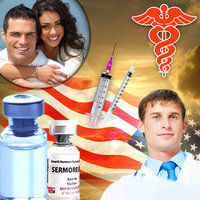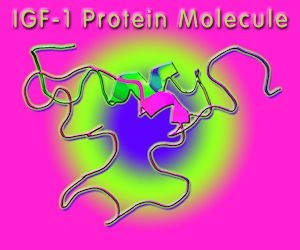Introduction to Radiation-Induced Hypopituitarism
Radiation-induced hypopituitarism is a condition that can develop in men following radiation therapy, particularly when the treatment is directed near the pituitary gland. This critical endocrine organ, situated at the base of the brain, is responsible for regulating various hormones that are essential for maintaining bodily functions. When exposed to radiation, the pituitary gland may suffer damage, leading to deficiencies in one or more hormones. This article aims to elucidate the patterns of hormone deficiency observed in American men and discuss the approaches to hormone replacement therapy.
Patterns of Hormone Deficiency
In men affected by radiation-induced hypopituitarism, the pattern of hormone deficiency can vary widely. The most commonly affected hormones include growth hormone (GH), luteinizing hormone (LH), follicle-stimulating hormone (FSH), adrenocorticotropic hormone (ACTH), and thyroid-stimulating hormone (TSH). Growth hormone deficiency is often the first to manifest, followed by gonadotropins (LH and FSH), which are crucial for testosterone production and spermatogenesis. Deficiencies in ACTH and TSH, which regulate cortisol and thyroid hormone production respectively, may also occur but typically present later.
Clinical Manifestations and Diagnosis
The clinical presentation of radiation-induced hypopituitarism can be subtle and may develop years after radiation exposure. Symptoms can range from fatigue and decreased libido to more severe manifestations such as muscle weakness and cognitive impairment. Diagnosis involves a thorough clinical evaluation, including a detailed medical history and physical examination. Laboratory tests to measure hormone levels are essential, and provocative tests may be required to confirm deficiencies, particularly for growth hormone and ACTH.
Hormone Replacement Therapy: A Tailored Approach
Hormone replacement therapy (HRT) is the cornerstone of managing radiation-induced hypopituitarism. The approach to HRT must be individualized, taking into account the specific hormone deficiencies identified in each patient. For growth hormone deficiency, recombinant human growth hormone injections can be administered to improve body composition, bone density, and overall quality of life. Testosterone replacement is crucial for men with gonadotropin deficiencies to restore libido, muscle mass, and energy levels.
In cases where ACTH deficiency is present, glucocorticoid replacement with hydrocortisone or prednisone is necessary to prevent adrenal insufficiency. Similarly, TSH deficiency requires thyroid hormone replacement with levothyroxine to maintain metabolic function. Regular monitoring and adjustments to the HRT regimen are essential to ensure optimal hormone levels and to mitigate potential side effects.
Challenges and Considerations in Management
Managing radiation-induced hypopituitarism presents several challenges. The long-term nature of HRT requires ongoing commitment from both the patient and healthcare provider. Potential side effects of hormone replacement, such as fluid retention with growth hormone or mood changes with testosterone, must be carefully monitored. Additionally, the risk of developing other health conditions, such as diabetes or cardiovascular disease, may be increased with certain hormone therapies, necessitating a comprehensive approach to patient care.
Conclusion: Enhancing Quality of Life
Radiation-induced hypopituitarism in American men is a complex condition that requires a nuanced understanding of hormone deficiencies and a tailored approach to replacement therapy. By recognizing the patterns of hormone loss and implementing effective HRT, healthcare providers can significantly improve the quality of life for affected individuals. Continued research and education are vital to advancing the management of this condition and supporting men in their journey toward hormonal balance and well-being.
Contact Us For A Fast And Professional Response

- Optimizing Testosterone Levels: Clomiphene Citrate's Role in Treating Secondary Hypogonadism in American Men [Last Updated On: February 22nd, 2025] [Originally Added On: February 22nd, 2025]
- Evaluating hCG Monotherapy and Exogenous Testosterone in Treating Hypogonadotropic Hypogonadism in Young American Men [Last Updated On: February 25th, 2025] [Originally Added On: February 25th, 2025]
- Multimodal Endocrine Evaluation Crucial for Diagnosing Fatigue in American Men [Last Updated On: February 26th, 2025] [Originally Added On: February 26th, 2025]
- The Impact of Insulin Resistance on Male Hormonal Health: A Comprehensive Overview [Last Updated On: March 7th, 2025] [Originally Added On: March 7th, 2025]
- Optimizing Hormone Therapy: Vitamin D's Role in Androgen Metabolism and HRT Protocols [Last Updated On: March 8th, 2025] [Originally Added On: March 8th, 2025]
- Optimizing Men's Health: Hormonal Balance and Personalized Hormone Replacement Therapy [Last Updated On: March 9th, 2025] [Originally Added On: March 9th, 2025]
- Unveiling the Potential of Neurosteroid Modulation in Treating Stress-Related Endocrine Dysfunction in American Men [Last Updated On: March 12th, 2025] [Originally Added On: March 12th, 2025]
- Harnessing the Power of SARMs: A New Frontier in Treating Male Endocrine Disorders [Last Updated On: March 13th, 2025] [Originally Added On: March 13th, 2025]
- Exploring the Impact of Oxytocin in Male Endocrinology: From Physiology to Therapy [Last Updated On: March 15th, 2025] [Originally Added On: March 15th, 2025]
- Chronobiology's Impact on Male Hormone Rhythms and Clinical Management [Last Updated On: March 18th, 2025] [Originally Added On: March 18th, 2025]
- Essential Trace Elements' Impact on Male Hormone Health: Zinc, Selenium, Magnesium [Last Updated On: March 19th, 2025] [Originally Added On: March 19th, 2025]
- Mitochondrial Function and Male Hormone Production: Therapeutic Targets for Age-Related Decline [Last Updated On: March 19th, 2025] [Originally Added On: March 19th, 2025]
- Precision Medicine in Endocrinology: Tailoring HRT for American Males Using Genomic and Metabolomic Data [Last Updated On: March 19th, 2025] [Originally Added On: March 19th, 2025]
- Gut Microbiome's Impact on Steroid Hormone Metabolism in Men: An Endocrinological Perspective [Last Updated On: March 19th, 2025] [Originally Added On: March 19th, 2025]
- Metabolomics: Revolutionizing Male Endocrine Health Diagnosis and Personalized Care [Last Updated On: March 20th, 2025] [Originally Added On: March 20th, 2025]
- Pharmacogenomics Revolutionizes Hormone Therapy for Men: Personalized Treatment Insights [Last Updated On: March 20th, 2025] [Originally Added On: March 20th, 2025]
- Ghrelin Modulation Enhances Testosterone Therapy for Weight Management in Hypogonadal Men [Last Updated On: March 21st, 2025] [Originally Added On: March 21st, 2025]
- Inflammaging and Endocrine Senescence: Impact on Male Hormonal Health and Optimization Strategies [Last Updated On: March 21st, 2025] [Originally Added On: March 21st, 2025]
- Adipokines in Male Endocrinology: Testosterone, Insulin Sensitivity, and Therapeutic Insights for American Men [Last Updated On: March 21st, 2025] [Originally Added On: March 21st, 2025]
- Pituitary Incidentalomas in Men: Endocrine Evaluation and Management Guidelines [Last Updated On: March 21st, 2025] [Originally Added On: March 21st, 2025]
- Endocrine Disrupting Chemicals: Impact on Male Health and Mitigation Strategies [Last Updated On: March 22nd, 2025] [Originally Added On: March 22nd, 2025]
- Thyroid-Testicular Axis: Impact on Male Reproductive Health and Management Strategies [Last Updated On: March 22nd, 2025] [Originally Added On: March 22nd, 2025]
- Understanding Male Climacteric Syndrome: Diagnosis, HRT, and Endocrinology's Role [Last Updated On: March 22nd, 2025] [Originally Added On: March 22nd, 2025]
- Optimizing Bone Health in Men on HRT: Importance and Protocols for BMD Monitoring [Last Updated On: March 22nd, 2025] [Originally Added On: March 22nd, 2025]
- Longitudinal Epigenetic Changes from Hormone Replacement Therapy in American Men [Last Updated On: March 22nd, 2025] [Originally Added On: March 22nd, 2025]
- Managing Prostate Health During TRT: Risk Stratification and Monitoring Protocols [Last Updated On: March 23rd, 2025] [Originally Added On: March 23rd, 2025]
- Somatostatin Analogues: Versatile Applications in Male Endocrinology and Beyond [Last Updated On: March 23rd, 2025] [Originally Added On: March 23rd, 2025]
- Multimarker Cardiometabolic Risk Assessment for American Males on HRT [Last Updated On: March 23rd, 2025] [Originally Added On: March 23rd, 2025]
- Managing Polycythemia in Men on Testosterone Replacement Therapy: Monitoring and Strategies [Last Updated On: March 23rd, 2025] [Originally Added On: March 23rd, 2025]
- Endocrine Reserve Testing in Men: Applications, Limitations, and Clinical Best Practices [Last Updated On: March 24th, 2025] [Originally Added On: March 24th, 2025]
- Vasopressin's Role in Male Endocrinology: Therapeutic Applications and Future Research [Last Updated On: March 24th, 2025] [Originally Added On: March 24th, 2025]
- Biomarkers in Male Endocrinology: Growth Factors, Cytokines, and Clinical Applications [Last Updated On: March 24th, 2025] [Originally Added On: March 24th, 2025]
- Strategic Hormone Optimization to Combat Sarcopenia in Aging American Males [Last Updated On: March 24th, 2025] [Originally Added On: March 24th, 2025]
- OSA in American Men: Beyond Testosterone, Impacting Multiple Endocrine Systems [Last Updated On: March 24th, 2025] [Originally Added On: March 24th, 2025]
- Androgen Receptor Sensitivity: Personalizing Hormone Therapy for American Men's Health [Last Updated On: March 24th, 2025] [Originally Added On: March 24th, 2025]
- Male Biological Clock: Endocrine Impacts on Fertility and Offspring Health [Last Updated On: March 24th, 2025] [Originally Added On: March 24th, 2025]
- Energy Balance and Reproductive Health: Neuroendocrine Integration in American Men [Last Updated On: March 24th, 2025] [Originally Added On: March 24th, 2025]
- Post-Traumatic Hypopituitarism in American Men: Diagnosis, Treatment, and Lifestyle Management [Last Updated On: March 24th, 2025] [Originally Added On: March 24th, 2025]
- Exercise and Endocrinology: Optimizing Hormonal Health in American Men [Last Updated On: March 25th, 2025] [Originally Added On: March 25th, 2025]
- Managing HPT Axis Recovery in American Men Post-Testosterone Therapy: Clinical Strategies [Last Updated On: March 25th, 2025] [Originally Added On: March 25th, 2025]
- Leptin Resistance in Men: Endocrine Effects and Targeted Management Strategies [Last Updated On: March 25th, 2025] [Originally Added On: March 25th, 2025]
- NAFLD and Male Endocrine Health: Bidirectional Impacts and Management Strategies [Last Updated On: March 26th, 2025] [Originally Added On: March 26th, 2025]
- HRT and Telomere Length: Implications for Aging in American Men [Last Updated On: March 26th, 2025] [Originally Added On: March 26th, 2025]
- Male Hormonal Health and Cognitive Function: The Role of Hormone Replacement Therapy [Last Updated On: March 26th, 2025] [Originally Added On: March 26th, 2025]
- Diurnal Testosterone Fluctuations: Implications for Diagnosis and Hormone Therapy in Men [Last Updated On: March 26th, 2025] [Originally Added On: March 26th, 2025]
- Endocrine Frailty in Aging Men: Multimodal Interventions and Preventive Care Strategies [Last Updated On: March 26th, 2025] [Originally Added On: March 26th, 2025]
- Androgen Therapy's Role in Managing Autoimmune Diseases in Men: A Clinical Perspective [Last Updated On: March 26th, 2025] [Originally Added On: March 26th, 2025]
- Neuropeptide Y: Key Regulator of Male Endocrine and Metabolic Health [Last Updated On: March 26th, 2025] [Originally Added On: March 26th, 2025]
- Free vs. Total Hormones: Key to Accurate Male Endocrinology Diagnosis and Treatment [Last Updated On: March 27th, 2025] [Originally Added On: March 27th, 2025]
- Endocannabinoid System's Role in Male Reproductive Endocrinology: Insights and Therapeutic Potential [Last Updated On: March 27th, 2025] [Originally Added On: March 27th, 2025]
- Luteinizing Hormone: Key to Male Endocrinology and Fertility Management [Last Updated On: March 27th, 2025] [Originally Added On: March 27th, 2025]
- Genetic Insights and Personalized Treatments for Male Hypogonadism [Last Updated On: March 27th, 2025] [Originally Added On: March 27th, 2025]
- Subclinical Endocrinopathies in American Men: Diagnosis, Treatment, and Impact [Last Updated On: March 27th, 2025] [Originally Added On: March 27th, 2025]
- INSL3: A Stable Biomarker for Leydig Cell Function and Male Health [Last Updated On: March 27th, 2025] [Originally Added On: March 27th, 2025]
- SHBG's Impact on Male Health: Hormonal Balance, Diagnosis, and Aging [Last Updated On: March 27th, 2025] [Originally Added On: March 27th, 2025]
- Endocrine Sequelae of TBI in Men: Long-Term Management and Follow-Up Strategies [Last Updated On: March 28th, 2025] [Originally Added On: March 28th, 2025]
- Opioid-Induced Endocrinopathy in Men: Mechanisms, Diagnosis, and Management Strategies [Last Updated On: March 29th, 2025] [Originally Added On: March 29th, 2025]
- AMH's Role in Male Endocrinology: From Infertility to Cancer Diagnostics [Last Updated On: March 29th, 2025] [Originally Added On: March 29th, 2025]
- Chemotherapy's Impact on Male Endocrine Function: Monitoring and Intervention Strategies [Last Updated On: March 30th, 2025] [Originally Added On: March 30th, 2025]
- Inhibin B: Key Biomarker for Assessing Male Fertility and Endocrine Health in America [Last Updated On: March 30th, 2025] [Originally Added On: March 30th, 2025]
- Hemochromatosis in American Men: Endocrine Effects, Screening, and Management Strategies [Last Updated On: April 1st, 2025] [Originally Added On: April 1st, 2025]
- Osteoporosis in Men: Primary, Secondary Types, Endocrine Evaluations, and Treatment Options [Last Updated On: April 5th, 2025] [Originally Added On: April 5th, 2025]
- Chronic Kidney Disease: Impacts and Management of Male Endocrine Function [Last Updated On: April 5th, 2025] [Originally Added On: April 5th, 2025]
- Hyperparathyroidism's Impact on Male Reproductive Health: Diagnosis and Management Strategies [Last Updated On: April 5th, 2025] [Originally Added On: April 5th, 2025]
- Hormonal Dynamics in Male Stress Urinary Incontinence: Insights and Therapeutic Approaches [Last Updated On: April 7th, 2025] [Originally Added On: April 7th, 2025]
- Managing Male Sexual Desire Disorders: Hormonal, Psychological, and Therapeutic Approaches [Last Updated On: April 8th, 2025] [Originally Added On: April 8th, 2025]
- Optimizing GH and IGF-1 in Male Athletes: Performance, Health, and Ethics [Last Updated On: April 8th, 2025] [Originally Added On: April 8th, 2025]
- Adrenal Incidentalomas in American Men: Evaluation, Management, and Long-term Monitoring [Last Updated On: April 10th, 2025] [Originally Added On: April 10th, 2025]
- Cushing's Syndrome in Men: Clinical Features, Diagnosis, and Management Strategies [Last Updated On: April 10th, 2025] [Originally Added On: April 10th, 2025]
- HRT and Male Fertility: Current Practices and Future Innovations for American Men [Last Updated On: April 10th, 2025] [Originally Added On: April 10th, 2025]
- Androgen Action: Molecular Insights and Endocrine Therapy Advances for American Men [Last Updated On: April 11th, 2025] [Originally Added On: April 11th, 2025]
- Enhancing Endocrine Resilience in Men: Hormones, Lifestyle, and Health Strategies [Last Updated On: April 11th, 2025] [Originally Added On: April 11th, 2025]
- Hormone Therapy Protocols for Transgender Men: Endocrinology for American Males [Last Updated On: April 12th, 2025] [Originally Added On: April 12th, 2025]
- Male Hormonal Contraception: Endocrine Mechanisms and Clinical Progress in American Males [Last Updated On: April 13th, 2025] [Originally Added On: April 13th, 2025]
- Digital Biomarkers Revolutionizing Hormone Therapy in American Men's Endocrinology [Last Updated On: April 14th, 2025] [Originally Added On: April 14th, 2025]
- AI-Driven Precision Endocrinology: Personalized Hormone Therapy for Men's Health [Last Updated On: April 14th, 2025] [Originally Added On: April 14th, 2025]
- Validating and Implementing PROMs in Male Endocrinology for American Men's Health [Last Updated On: April 15th, 2025] [Originally Added On: April 15th, 2025]
- Integrative Endocrinology: Enhancing Men's Hormonal Health with Holistic and Conventional Therapies [Last Updated On: April 15th, 2025] [Originally Added On: April 15th, 2025]
- Telehealth Revolutionizes Hormone Replacement Therapy Management for American Men [Last Updated On: April 16th, 2025] [Originally Added On: April 16th, 2025]
- Quality Indicators in Male Endocrinology: Development, Implementation, and Impact on Men's Health [Last Updated On: April 17th, 2025] [Originally Added On: April 17th, 2025]

















